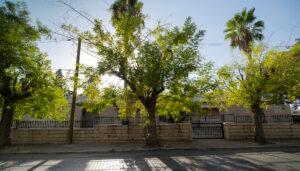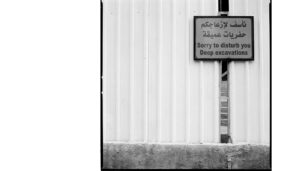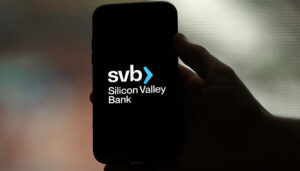Where technology, media and society meet: What does Google know about you? And more importantly, how can you find out?
Written by Ramsey Tesdell and John Lillywhite. With JO.JO
Get Crunched!
SINCE IT LAUNCHED IN 2008, ArabCrunch.com has struggled to find its place in the growing world of Internet startups and so-called professional blogs. Now, the entrepreneurially-minded technology blog has just announced that it’s launched a new social networking site for Arab entrepreneurs, ArabCrunch.net.
The announcement was made in Amman on November 11, as the ArabCrunch group closed its latest round of funding.
Gaith Saqr, ArabCrunch’s founder, said the social networking site is the first of its kind in the region, and will bring different aspects of starting an Internet business together for the first time in one place, in a sort of “ecosystem.”
“The ecosystem consists of universities, research and design centers, lawyers, mentoring, matchmaking and other services that will come together to support Arab entrepreneurs,” Saqr said.
Back in October, ArabCrunch launched an Arabic-language technology website, supplementing the technology-blogging format developed on the English-language ArabCrunch.com with user-generated content or “citizen journalism.”
Building on the success of Arabs in Silicon Valley, Saqr is hopeful that the region can become fertile ground for growing new technology companies. He said there are “lots of Arab success stories in Silicon Valley, and we have experience there. Many of them are willing to help. We’re trying to bring stories to the region—not that you have to go to the United States to have a successful company.”
Now if only someone would create a social network that gave wasta to all!
ArabCrunch debuts Arabic-language site
ArabCrunch.net launches
GOOGLE 1984
IN AN ATTEMPT at greater transparency, and in answer to calls for more open information, Google recently unveiled Dashboard: a single place where you can view and manage all the information that exists about you online, helpfully stored in a specific Google account.
Privacy and security have become ever-more important as the Internet has expanded its reach. Now, when some of us rely exclusively on the Internet for communication, preserving your online identity is more important than ever.
With Google Dashboard, you can, in theory, see everything that Google knows about you, from information that’s fairly innocuous, such as how many videos you’ve posted or the number of RSS feeds or Google Alerts you’ve set up, to more delicate data such as a complete list of contacts, a detailed account of your email messages and an overview of any calendars you’ve created.
That may be fine if you’ve got nothing to hide. But who really has nothing to hide? And for activists and opposition figures around the world, particularly in repressive countries, having everything you’ve done or plan to do, all your contacts and every email you’ve ever sent in one place can pose a serious risk.
Google has in mind that Dashboard will make you feel more secure about your e-stuff. For us, at least, it provoked the opposite reaction. Now, in one place, you can basically see your entire digital life, displayed on a clean and trendy Google page. That kind of freaks us out.
OPEN-SOURCING CREATIVITY
As the battle for regulation of online content rages on, Creative Commons is on the front lines—and taking ever more territory.
November 16 saw the first Creative Commons Arab World Salon, held at the Al Balad Theatre under the patronage of HRH Prince Ali Bin Al Hussein and with the support of the Royal Film Commission.
“The Amman salon is going to be a major step going towards fostering the creation of original Arabic content and encouraging people to share it with the entire world,” said Donatella Della Ratta, CC’s World Media and Development Manager.
Creative Commons is a non-profit organization that allows large companies, individuals and bloggers to license their copyright permissions as “some rights reserved” rather than “all rights reserved.” The aim is to create a globally recognized license that works alongside existing copyright laws, and which can be tailored by content providers to suit their needs—allowing them to waive certain rights for the benefit of users or creators, while at the same time reserving those rights they wish to retain.
In effect, Creative Commons is an intellectual property regime engineered for the Internet. It aims to protect rights holders while at the same time promoting the openness of the digital commons. The goal, according to founder Lawrence Lessig, is to counter the “increasingly restrictive permission culture” of the large media conglomerates, or those who regard the Internet as a threat rather than an opportunity.
Creative Commons in Jordan has been led by the duo Ziad Maraqa and Rami Olwan, who translated and edited the legal code to make CC compliant with Jordanian law.
At the salon and associated events, people from around the Arab world presented ways in which Creative Commons had allowed them to put their ideas online.
One of the most impressive was the Al Jazeera repository, which made a huge splash in the media world during Israel’s war on Gaza at the end of 2008. Few media outlets besides Al Jazeera had cameramen in the Gaza Strip, but instead of clenching their fists in a hopeless attempt to hold exclusive rights to the video, Al Jazeera did the opposite: they released much of the content free for public download under a CC license.
The Amman salon also featured presentations from Lebanon, Syria and Egypt, among the most interesting of which was Maya Zankoul’s case study on how the Creative Commons license has allowed her to protect and at the same time distribute her comic designs and social satire brand. Emad Nasser from Seejal also spoke of how CC has allowed his team to protect and promote ancient Arabic poetry in digital form.
Overall, the seminar was an excellent and informative event.
Jordan’s contribution to CC:
jordanopensource.org
Creative Commons CEO Joi Ito:
joi.ito.com











